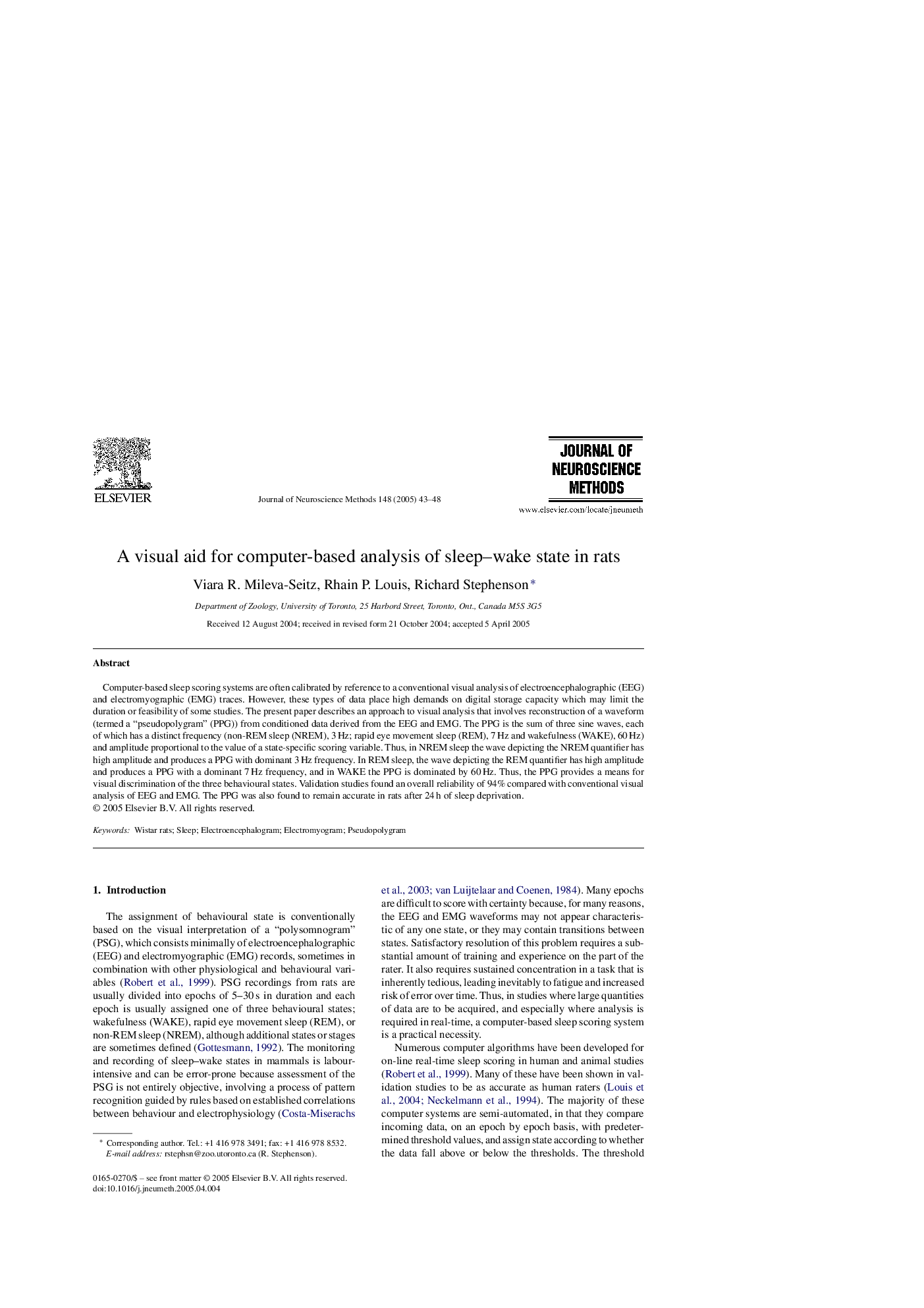| کد مقاله | کد نشریه | سال انتشار | مقاله انگلیسی | نسخه تمام متن |
|---|---|---|---|---|
| 9424095 | 1295247 | 2005 | 6 صفحه PDF | دانلود رایگان |
عنوان انگلیسی مقاله ISI
A visual aid for computer-based analysis of sleep-wake state in rats
دانلود مقاله + سفارش ترجمه
دانلود مقاله ISI انگلیسی
رایگان برای ایرانیان
کلمات کلیدی
موضوعات مرتبط
علوم زیستی و بیوفناوری
علم عصب شناسی
علوم اعصاب (عمومی)
پیش نمایش صفحه اول مقاله

چکیده انگلیسی
Computer-based sleep scoring systems are often calibrated by reference to a conventional visual analysis of electroencephalographic (EEG) and electromyographic (EMG) traces. However, these types of data place high demands on digital storage capacity which may limit the duration or feasibility of some studies. The present paper describes an approach to visual analysis that involves reconstruction of a waveform (termed a “pseudopolygram” (PPG)) from conditioned data derived from the EEG and EMG. The PPG is the sum of three sine waves, each of which has a distinct frequency (non-REM sleep (NREM), 3Â Hz; rapid eye movement sleep (REM), 7Â Hz and wakefulness (WAKE), 60Â Hz) and amplitude proportional to the value of a state-specific scoring variable. Thus, in NREM sleep the wave depicting the NREM quantifier has high amplitude and produces a PPG with dominant 3Â Hz frequency. In REM sleep, the wave depicting the REM quantifier has high amplitude and produces a PPG with a dominant 7Â Hz frequency, and in WAKE the PPG is dominated by 60Â Hz. Thus, the PPG provides a means for visual discrimination of the three behavioural states. Validation studies found an overall reliability of 94% compared with conventional visual analysis of EEG and EMG. The PPG was also found to remain accurate in rats after 24Â h of sleep deprivation.
ناشر
Database: Elsevier - ScienceDirect (ساینس دایرکت)
Journal: Journal of Neuroscience Methods - Volume 148, Issue 1, 15 October 2005, Pages 43-48
Journal: Journal of Neuroscience Methods - Volume 148, Issue 1, 15 October 2005, Pages 43-48
نویسندگان
Viara R. Mileva-Seitz, Rhain P. Louis, Richard Stephenson,